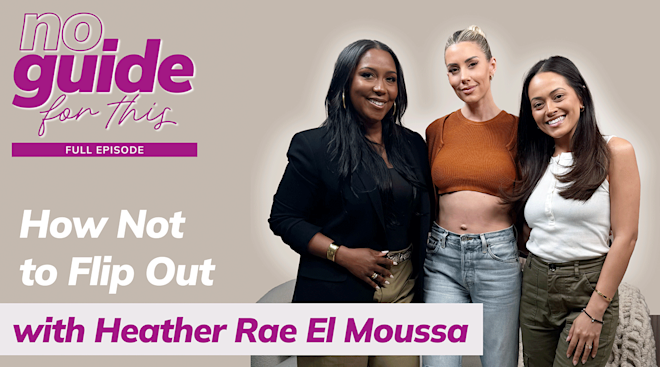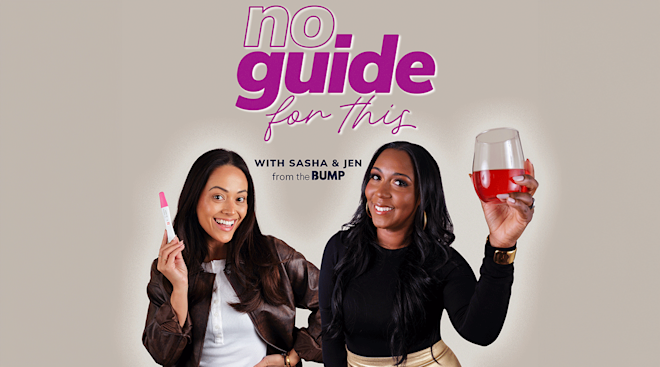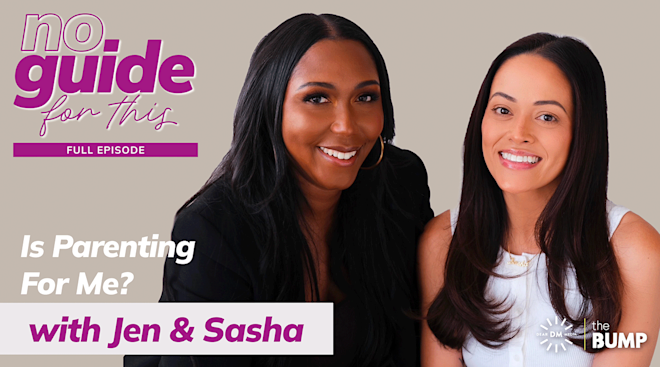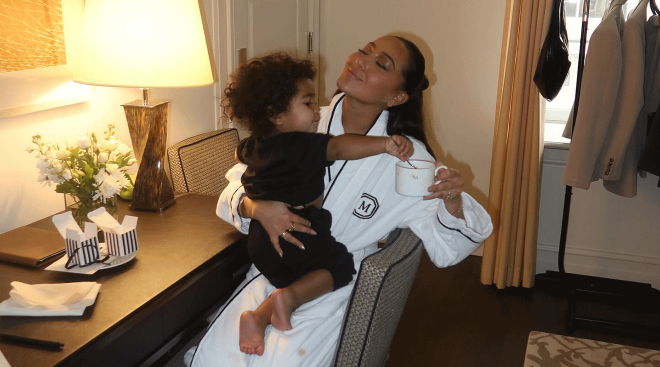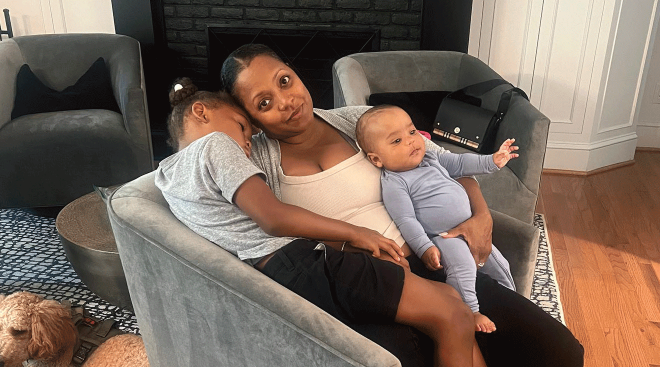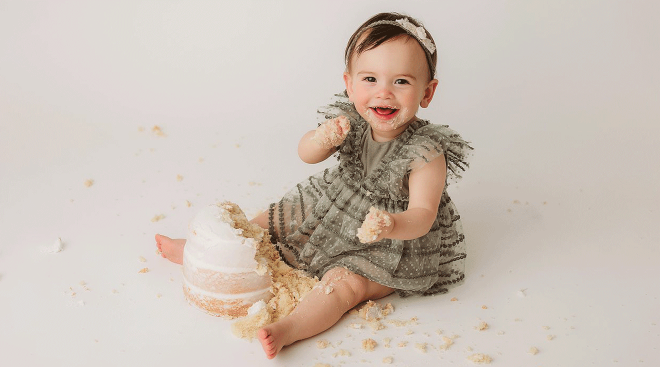Black Moms Empowering Black Moms With Words of Wisdom
It was 5 a.m. and I was bent over the sink in my sister’s bathroom nervously squinting at a pee stick with two visible lines. My husband and I had flown in from out of town to attend my niece’s first birthday and after I laugh-peed on myself three times in a row, I decided something was off with my body.
As a joke, my sister rushed out, bought a pregnancy test and instructed me to take it first thing in the morning. There I was, before anyone else in the house was awake, freshly pregnant, crying, thrilled and scared out of my mind.
The early days of pregnancy were a wild ride of emotions. My body was rapidly changing as my mind struggled to imagine what birth would be like. As the weeks and months passed and my due date approached, my focus shifted from getting baby out of my body to helping baby navigate life. Suddenly, pregnancy seemed like the easy part.
As Black mothers, we sit at the intersection of our ancestors’ wildest dreams and our own irrational fears. Generational trauma and bewildering reports about maternal health statistics can muddy the narrative surrounding our experiences. But as we navigate the intricacies of Black motherhood, it’s often the words of our comrades—other Black women who’ve been there—that have the most relevance.
“Let your baby grow into their life,” my mother told me shortly after giving birth. She watched me stress myself out trying to create a perfectly serene environment, void of doorbell noises and barking dogs. Her words were an attempt to remind me that kids are resilient and that curating perfection won’t help them grow. From the early days of motherhood to the early days of middle school, my mom’s advice has carried me through moments Google couldn’t.
The affirmations and words of encouragement from Black moms have been touchstones that reinvigorate me or pull me back to center when I forget what’s important. So I asked Black moms from all walks of life to share their words of wisdom to affirm moms out there who are just beginning to chart their path.
Motherhood is not a monolith, and neither are mothers. Remembering who you are and remaining open to how you will evolve is as important as raising loving, confident children. Black mothers want you to know to trust yourself, love yourself and remember yourself through this journey.
Embrace that mothering is rooted in evolving. As your baby grows and develops, so shall your approach to parenting.
“Being a disabled parent/parent with a disability (apparent, non-apparent, chronic illness) is possible.” — Heather Watkins, Disability advocate
“Schedule your ‘self’ time and get used to taking that time. You deserve and need that time.” — Reagan Gomez, TV, film and voice actress
“I’ll never forget a dear friend of my mother’s telling me in my early 20s before I became a mother, ‘You will hold many titles. Remember that you are and will always be Brandi.’ This advice has carried me. Since hearing these wise words, I’ve become a mother to three boys, a wife, an author and so much more. I know with certainty that the only reason I’ve felt free enough to go after the things that spark joy is because I have remembered my own name, first, amongst the many titles, including mother, that I hold. This has been my North Star.” — [Brandi Sellerz-Jackson](Brandi Sellerz-Jackson), author of On Thriving
Your family story may include painful memories. It’s easy to say, ‘this stops with me,’ but it’s not always easy to break habits that feel ingrained in your DNA. Black mothers want you to know that this work is meaningful, hard and possible.
“Our Black children don’t need us to show them ‘tough love.’ The world will be tough; we are allowed to be their soft place to land when they need a second chance and grace. That’s not failure.”
“You’re right. Fight for what your gut is telling you.” — India Walton, nurse and political activist
“No name calling, even jokingly. Speak lovingly about them and their future. Gas them up from Day one! No, their head isn’t going to get big from the compliments. Never stop hugging and kissing them. Listen to them. Understand that they don’t know better. They’re learning.” — Chervelle Bundrige, leadership expert
“You don’t have to mother like your mother.” — Jasmine Williams, educator and doula
Raising a child requires help and community. But building this support system also takes vulnerability. Growing community means asking for what you need. Black mothers want you to know that you cannot do this alone.
Being a mom is the hardest job in the world so make sure to rally your village close to you.
“You need your village to show up for you and your partner. If you don’t have a village that can support you (especially if you’re single) please seek outside help that you can pay for. Even if it’s one day a week allow someone to help you through this new life transition.” — Dawn Montgomery, journalist and mental health advocate
“Find your pediatrician early— vet them, stay in touch and be consistent. Being able to call a medical professional for small and little things and having someone else recognize changes can be comforting and reassuring.” — Ruqaiyah Najjar, EIC at Now This News
“If you can, find one to two family members or close friends that you trust that are also reliable to help you out so you can take a break. There’s so much mental load in motherhood, sometimes you just need to nap/eat (uninterrupted) or go out for lunch with a friend.” — Marline Francois-Madden, LCSW, author of The State of Black Girls
The world you’ll meet on the other side of motherhood will fawn and fuss over your beautiful little baby. As they grow, society will meet them differently. As inconsistently as the world will rally around your child, you get to be their steadfast advocate. Black mothers want you to know your job will be to always stand in your child’s corner.
Not everyone in authority will be invested in your child's success. That list includes teachers and doctors, so do your research and be your child's biggest advocate.
“You can’t protect your kids from everything but you can expose them to the tools that’ll get them through anything.” — Whitney McGuire, attorney, strategist and head of sustainability at the Guggenheim
“Your instincts are not lying to you and are always worth double checking.” — Gloria Alamrew, writer
“You are your child’s best advocate. Your instincts aren’t going to steer you wrong. It’s perfectly fine to ask for second and third opinions. A doctor who sees your baby once every three to six months does not know more about your baby than you do. Trust yourself.” — Bärí A. Williams, Esq., attorney and start-up advisor
“As a neurodiverse mother of neurodiverse children, Your voice matters. Advocate for yourself and your baby in healthcare settings. Your concerns and preferences are valid and important. — Kisha Gulley, Autism advocate
As an expecting Black mom, you’ll read a lot of books and articles about how to raise the child you’re anxiously waiting to meet. Strangers will pass you on the street and offer unsolicited advice. The things you’ll be told will often feel conflicting or like they don’t quite fit. It’s important to know that everything you’re told should be weighed by what you feel in your bones, and what you know about your baby.
But there’s something to be said for taking in the affirmations and reminders of women who’ve traveled this path before you and alongside you. We too are deeply and irreversibly invested in raising Black children who know they are loved.
Navigate forward to interact with the calendar and select a date. Press the question mark key to get the keyboard shortcuts for changing dates.


































